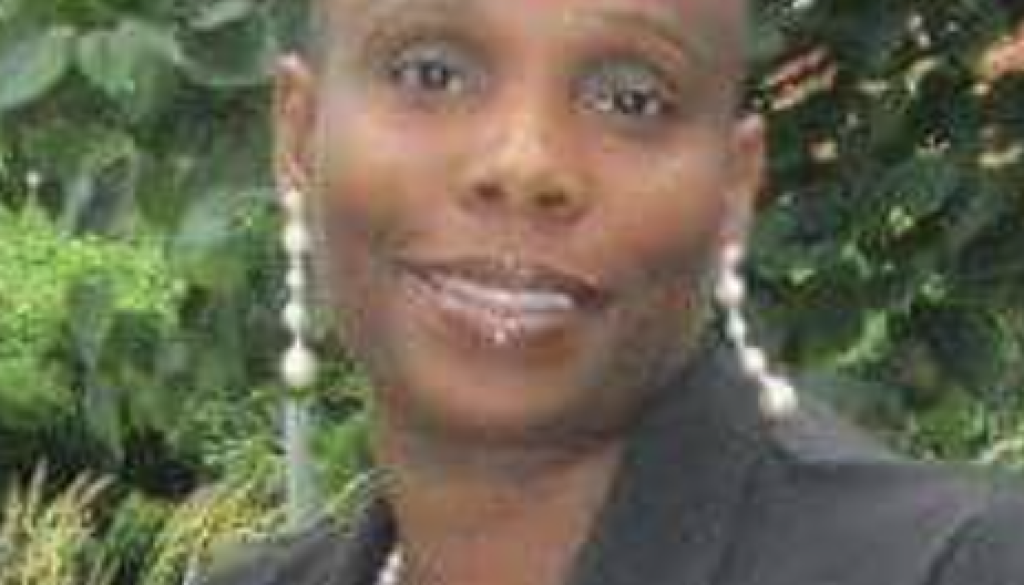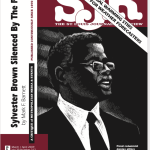As Tango Walker-Jackson moved from one position to another in her professional life, she says she was often told that she wasn’t a good fit. This is a point of pride for her, because why should she fit into systems that pay lip service to diversity and inclusion but perpetuate white supremacy. Both as a professional and a parent, Walker-Jackson has spoken up and called out corporate leaders and educators. She can be loud, she admits, but she is also thoughtful and reflective. Walker-Jackson, 49, is on the cusp of earning a doctorate in education with an emphasis in social justice from the University of Missouri-St. Louis and has positioned herself as a trainer and thought leader for parents of color and educators who want to do right by them.
Here is an edited transcript of an e-mail conversation that I conducted with Tango-Jackson during the week of Nov. 8-15.
— Richard Weiss
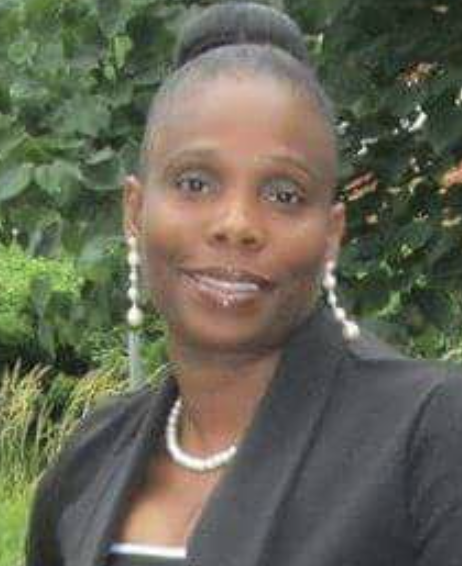
Weiss: What are the nouns that apply to you and in what order? As in “I am a …..”
Walker-Jackson: I am a Black mother. I am a Black woman. I am a wife, an early childhood practitioner, a social justice and educational equity warrior. I am a troublemaker of the good kind.
Weiss: Tell us about your parents and what you learned from them about how to walk in this world.
Walker-Jackson: My mom, Rochelle Walker-Fleming, was the first female scholar athlete of her high school (Vashon). She and my dad, Lafayette Fleming Jr., met at Cornell University where they both earned degrees and my mom went on to earn a master’s degree at Washington University.
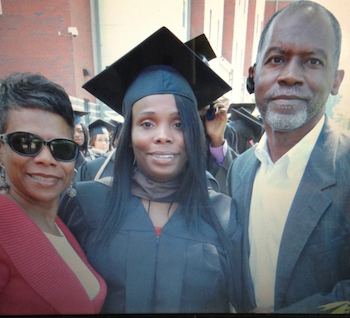
My mother was a math major and my dad an engineer major. Both worked in corporate America most of their careers. They taught me the importance of education, to be an avid reader and that there is no limit to what to what I want to do in life. There may be obstacles, but no limits. They taught me basically to be myself. That meant being accountable for my actions and also unapologetic about who I am. They also taught me about valuing those who you love by showing up for them. My dad taught me how to cut the grass and wash a car and how to be punctual. I miss him.
Weiss: You have so many top drawer athletes in your family, and you are one of them. Tell us about your experiences in athletics and how they shaped your life and your thinking.
Walker-Jackson: I started playing sports at a young age and learned the importance of teamwork, kinships, and resilience. I played t-ball, softball and racquetball pretty early. I played volleyball for a minute and in grade school was always one of the first ones picked for the kickball team. I played basketball with the Matthew Dickey Boys’ & Girls’s Club. Looking back I must say that my Normandy High School experience with Coach Kendall McGowan and Coach David Todd were the most pivotal. We had one of the best teams in the state. Then I got injured (tore my ACL) and the surgery and recovery time weren’t nearly as fast as it is now.
Coach McGowan and Coach Todd believed in us and gave us the “right” to believe in ourselves. Just recently I was anxious about giving a keynote speech and made a post on social media about it. Coach Todd commented saying, ” Tango …..4 Quarter game on the line nail the jumper, and close the game out! You got this use that money shot! I watched it too many times!” and in that moment I could feel the confidence override the anxiety. Those three years assisted me in being the outspoken, don’t back down, stay the course person that I continue to be today. Being a Normandy Viking basketball team captain held much responsibility. I carry that responsibility in my daily life. Often after a win the entire team and families would come to my house and we’d have dinner and celebrate. I still carry the importance of team as family, and that all for one and one for all disposition..oh and I am definitely competitive!
Weiss: Now you are a cheerleader for your kids in athletics. Despite their abundant skills in football, basketball, soccer. it hasn’t always been easy for them. Tell us about some of their challenges.
Walker- Jackson: So I coached youth sports when my children were younger: basketball, soccer and cheerleading. Whatever they showed an interest in we pursued. I had to learn that racism/internalized oppression is woven into the fabric of athletics just as it is in education, healthcare and the workplace. My children experienced some pretty traumatic situations as standout athletes. I am certain if social media was as popular many years ago as it is now, the situation that happened with my child who was a stellar athlete in the Clayton School District would have ended in a different manner. Ten years ago he was ranked in the top 100 best athletes in the state of Missouri for football in seven categories. However, his future opportunities were castrated because the high school head coach/staff/ etc held over 45 prospective college letters and an opportunity to take the stage at the ESPN Combine causing him to miss all deadlines to apply and attend!
My youngest daughter, who is now playing college basketball, encountered a bully as a coach her sophomore year of high school. Not just a yelling coach or one that curses, but a coach who attacks her personhood. That year was a nightmare on and off the court. My daughters who went to college for sports both encountered microaggressions. One was told by her coach she could sit on the bank because she knew Black girls couldn’t swim. My other daughter would be called different Black people by her coaches when she changed her hair style. My children are doing well in spite of that. Three adults, one young adult (junior year of college) and a 12 year old. My 12 year old son played tackle football for the first time this season. He ended the season with 32 touchdowns, many tackles and his team won the Super Bowl. He reminds me of his older brother; playing on both sides of the ball; offense and defense. As the season went from start to finish, I was reminded of what we have already been through because the echoes of racism began to ring from the field to the stands. Questioning his age because of his height (you know Big Black Boy=aggressive, etc). Comments that he’s going to lead his high school to x,y,z championships.
There are still glimpses of hurt in the eyes of my eldest son but he has always had the glimmer of hope and faith. My daughters believe that they are the change they want to see in the world. As their mother, I am still affected by what happened. People have said I should’ve known because of where they’ve gone to school. However, some of these acts were done by people that look like them too.
Weiss: You have NOT been a butcher, a baker or a candlestick maker, but you sure have been a professional in a lot of different fields and also avidly pursued educational goals as well. Your LinkedIn profile: https://www.linkedin.com/in/tangowalker/
Describe your journey and some of the challenges you faced as an outspoken advocate for social justice.
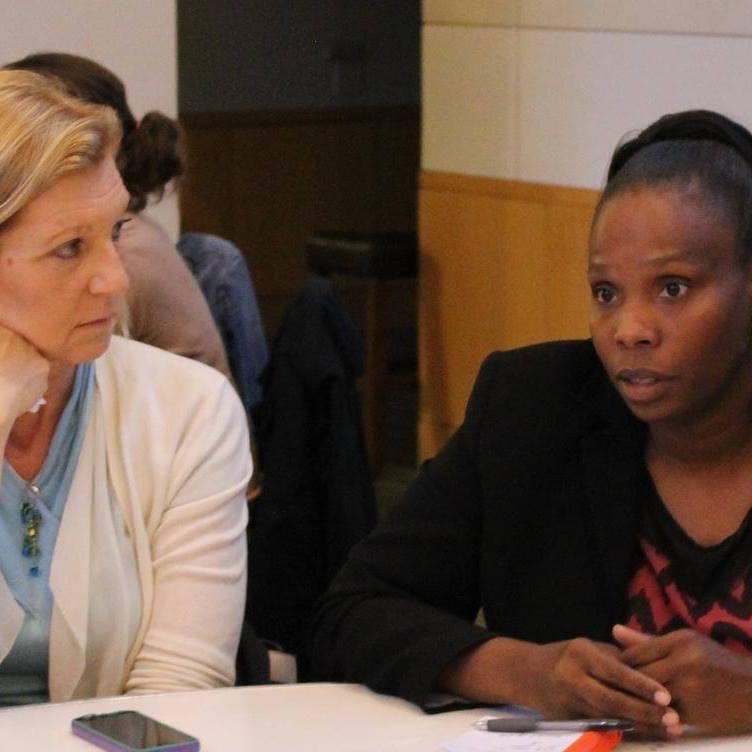
Walker-Jackson: I have often felt like the butcher, the baker, the candlestick maker in many spaces; in both my professional and personal life; attempting to build something perfect from scratch; putting my all into finding the right ingredients, mixing them together to make the right recipe, deciding on how much of this research, or how much of these personal experiences to add so I can feed it to the people that need to hear it; altering the recipe for the “type” of audience I am serving the dish to in hopes to at the least open their eyes and at the most open their hearts. Black children are being are being destroyed in many ways beginning in the early learning years (often times in the womb) and as they travel through life.
I know my assertiveness, my “out of the box thinking,” and my steadfastness has been professionally costly over the years. I have worked in organizations that appeared to be doing their best work for Black children, but in reality were not and oftentimes harming them. I recall a supervisor telling me as long as she could feed her children and husband, she was cool, despite clear violations of licensing regulations and inappropriate disciplinary practices taking place in the center that served some of the most vulnerable children in the city of St. Louis. I was the associate director of the early childhood program at the time. I was terminated three days before my 90 day probation was over. I was told that I wasn’t a good fit. I was a good manager and knew early childhood, but I wasn’t a good fit. However, a few days later I was nominated by this same organization to receive an early educators appreciation award.
I walked away from an elementary school teaching position a few years ago because of the messages I was receiving from my direct supervisor, “You care too much. Teach those that you can reach even if it’s 1 or 2.” The level of emotional, social and physical violence taking place was too unsettling. I’ve been overlooked for positions and told “you’re just too outspoken.”
As a mother, grandmother, education advocate, advocate for equitable experiences, I make myself available for friends and family that ask for my support when their children have been placed in compromising positions in school or with the law. I have made bold moves for my own children; I have made unfavorable moves as a classroom teacher, center manager, and director for children to be given equitable treatment; no matter how the child looked, no matter their socio economic status, no matter if it was a two parent household.
My children and their friends used to joke that when the school staff saw me coming they would push a red button under the secretary’s desk to alert others that I was there. I’ve learned to make my presence known as a parent; signing up for room parent only to not be called; so I would have to call and place myself in a role. I am always anxious when I speak up because people can take it out on the people you love, but my heart for equity won’t let that stop me.
I question if where my child(ren) are in school is the best place for them; and when I look around there’s just no safe place for Black children. I remember my daughter was told she couldn’t have lunch because the free lunch was all gone (she was late coming from biology lab) and she could have a fruit cup and a carton of milk. First and foremost, food is a basic need and secondly how do you assume she received free lunch. And this statement was from a Black man.
A similar situation when my other daughter was in kindergarten she was told she couldn’t get yogurt at lunch time because, “Well you know WE don’t eat yogurt and I’m sure you get free lunch” is what the lunch lady said….A Black woman. Of course, I went and addressed both incidents with the administration and in parent meetings. Many refuse to see how these statements, these micro-aggressions based on a racist lens harm Black children.
One of the more recent incidents happened a few years ago with my son. The gym teacher told him he was chasing another boy so fast he was going to call the police on him. Trauma! Yes, the gym teacher is still employed. Yes, the school knew. Yes the gym teacher admitted to it but stated he said he was going to call 911. As if that made any difference. Parents in meetings stated the gym teacher has been a bully for years….. yet he is still there. Not enough people care about Black children. Not enough people will collectively stand together to dismantle systems that hurt, destroy and traumatize Black children.
I’ve even challenged the syllabus in my doctoral program: Doctorate in education with an emphasis in social justice…. There is a piece in the syllabus that tells students to be polite, understate not overstate your point and use positive language. I don’t know about you but for me very few conversations about social justice will be polite. If they are polite and everyone is comfortable then there will never be any change. Let’s keep our fingers crossed that I will graduate in May of 2022.
But there is light at the end of the tunnel. I have been given a few platforms to speak to and engage others about racism, the system of racism, the preschool to prison pipeline and the tiring talk Black mothers have to have with their Black sons and now their Black daughters on how to engage with the police. I am coming to believe that my reward for this work will not be monetary.
Weiss: “Not a good fit” should be the title of your memoir. If I understand you correctly, your parents were noble, but more understated. What do you think set you on fire, so to speak? You are unique, but do you have a role model for being both outspoken and driving change? Do you see your children following the same path? (I am remembering one of your daughters leading a walkout at Horton Watkins about five years ago.)
Walker-Jackson: My parents were corporate America folk and I remember my mom saying she didn’t remember all of this stuff happening in those spaces. I would visit her offices often and don’t ever recall feeling profiled. Both my parents were in upper management and my dad was in HR the latter part of his career. My dad was quiet, matter of fact and effective in his work. My mother is not to be played with. She has a vocabulary and a quick wit that will hit you and you don’t realize it until it’s too late for a rebuttal.
I would not say I have one specific role model. I will say that in my early years, I was raised by my grandmother; a spitfire who did not hold her tongue, good or bad. Although she had a limited education, she was great at math and budgeting. My grandmother, Hortense Walker, was passionate about what she liked and what she didn’t like. I also had a great-grandmother, Bettie Ann Pennington-Shell, who was the sweetest, most empathetic person I have ever known. She would give you her last and expected nothing in return.
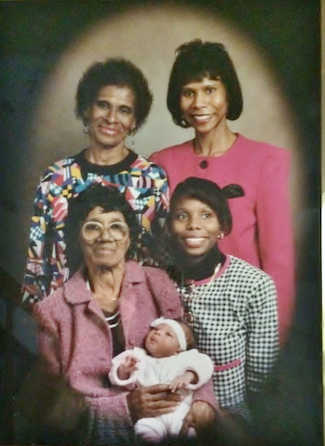
Driving change definitely comes from my mother. She knew what she wanted for herself and for me and she went for it. She was driven enough to travel 885 miles away from home on a college scholarship because she was determined to get out of poverty. While my driving change looks different I attribute that to her. My mother says I talked very early so I think I was born to be outspoken. My mother has a small circle of Black women friends who have been in my life since I was 5 years old. All corporate America women. Each strong, outspoken, driven in their own way. Each showing up for my mother and our family through the years; still! My Godmother, Sharon, is always a phone call away. My Godmother, Peggy, as well; and will get here if need be in a heartbeat! Carolyn and Barbara are my aunties by love. They show up. So, no I don’t have a specific role model. I have role models. I also think about my former 3rd-4th grade teacher, Mrs. Rosalee Johnson. She would tell me I talked too much, then she would whisper keep talking in my ear.
My youngest daughter was talking in full sentences 10 months so I think she got the drive and outspokenness through cellular memory. My children are all driven; each on their own journey. I am proud of who they are. They are the best parts of me. Each able to stand up for themselves; some choosing their battles while some choose to battle. We get together often, two daughters do not reside in St. Louis at the moment, but we are in touch nearly daily. I often reflect on what I could’ve done differently so they could be more whole, less affected by the system of racism, and I often apologize. Knowing that they often suffered in silence to keep me sane.
Weiss: What is your advice to parents who have encountered some of the same challenges you have had as a parent when you found your child marginalized or disrespected?
Walker-Jackson: My advice is to speak up. Know that you are not alone. Also perhaps begin to change how you view your own child and systems that mistreat them. Many parents operate from an oppressed state of mind and accept the way children are being treated. Parents don’t have to know all of the answers, but please listen to your child. Be present for your child. It is imperative to advocate for your child. Do not be afraid or anxious when you need or want to address someone that is inflicting trauma or administering unfair practices to your child. Do not listen to those who try to deter you.
Weiss: Last question. How did you get your name, Tango? And, I bet you’ve been asked this a million times: Does it take two? Anyway, I’m sure you have some stories about your name.
Walker-Jackson: My grandmother was given the honor of naming me. She named me after her favorite character from the soap opera The Edge of Night.I always say it’s easier to dance with the devil than to do the Tango.

